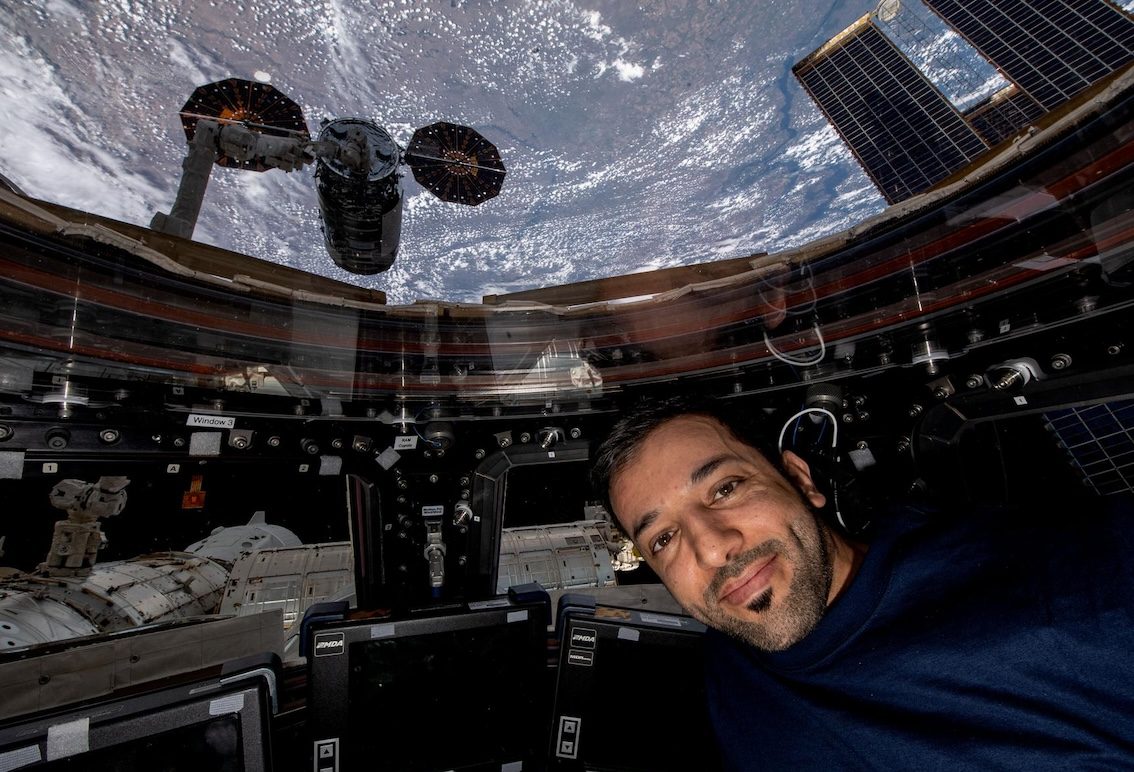Nasa
- UAE fertile ground for startups
- Sector worth $117bn in 2024
- Telecoms value to increase
Two years ago, the UAE’s Rashid Rover crashed into the moon’s Atlas crater during an attempted landing, marking an abrupt end to the country’s first mission to the moon’s surface.
Now, back on Earth, the UAE is once again seeking to stake its claim as part of an elite club of countries with business to be done on the moon. This time, though, they are doing so from the conference hall.
In late 2024, the UAE was selected to host International Moon Day 2025, and Abu Dhabi has pledged to set up a Moon Village Centre, which will host the Moon Day’s lunar economy-focused event in the Emirate.
The Moon Village Association, which runs International Moon Day, said the partnership “recognises the UAE’s growing influence in the global space industry and its notable commitment to advancing space innovation and diplomacy.”
The moon may continue to represent a source of symbolic victory for countries capable of reaching it – or, perhaps in the Emirates’ case, a symbolic failure – but for the UAE, space is about far more than Earth’s biggest satellite.
Indeed, the country has gone to great lengths to make itself into a spacefaring nation, including by sending astronauts into space and a probe to Mars.
In December, the UAE government awarded Space42, an Abu Dhabi-based space technology company, a $5.1 billion contract to provide satellite capacity and related services with the Al Yah 1 and Al Yah 2 satellites in orbit.
In early 2025, Space42 commissioned Elon Musk’s SpaceX to launch its Thuraya 4 telecommunications satellite into orbit.
Data from Analysys Mason, a technology, media and telecoms consultancy with offices in Dubai, shows annual space economy revenues in 2024 amounted to $116.6 billion, and are expected to grow to $240.3 billion by 2032, a total of $1.47 trillion over that time period.
Currently, infrastructure such as the building and launching of satellites and infrastructure-focused applications account for just over half the market, while communications applications such as navigation, Earth observation, and more account for 40 percent.
 Wam
WamDallas Kasaboski, principal analyst for the space economy at Analysys Mason, tells AGBI: “A lot of what is being done for or with space is still hardware-based. It’s all about satellites, rockets, or infrastructure to support them.”
Kasaboski says that, as of the end of 2024, space infrastructure, including companies such as SpaceX, which are building out the world’s space infrastructure, was making about $60 billion a year, against the $47 billion that satellite communications are generating.
While space infrastructure revenue is expected to remain flat, communications revenue, like that generated by Space42’s Thuraya satellite, is expected to grow to $160 billion per year by 2032.
This is where the UAE’s return on investment in the space economy is likely to come.
“Communications will be the lead,” Kasaboski says. As with many emerging technologies, he says, new use cases for tools like Earth Observation are constantly emerging as the sector develops.
In addition, Kasaboski says, the UAE’s access to capital pockets can help it carve itself a piece of the space economy, despite not necessarily having the infrastructure in place to be a central player, as with the US or China.
“One thing that the satellite and space industry is missing is money, and the UAE has shown that they are able to consolidate funding in a very impactful way,” Kasaboski says
Alex Cresniov, CEO of SpaceTech in Gulf, a UAE-based analytics and space market intelligence company, tells AGBI: “Space technologies are becoming more accessible and integrated into broader applications,” leading to increased demand for services such as Earth Observation and the Internet of Things (IoT).
Advances in artificial intelligence and data solutions are making Earth Observation and IoT more practical for industries such as agriculture and oil and gas.
“The telecommunications segment stands out as the most mature and commercially viable sector in the space industry,” Cresniov says.
The UAE’s space economy is still in its growth phase, providing companies with opportunities to establish themselves and play an influential role in shaping the ecosystem.
“Strong government support, including funding and policy incentives, creates a favourable environment for innovation and expansion,” Cresniov says.
Among those young companies in the UAE’s space economy is Stellaria, which uses AI to deliver geospatial solutions and insights for smart cities.
Stellaria’s co-founder, Nick Trudgen, believes that opportunities for space start-ups abound in the UAE.
“One of the biggest opportunities in the UAE is taking advantage of the neutral geopolitical situation of the country, which allows space tech companies to collaborate with companies in China, India, and from across the world,” Trudgen says.
“If a space tech startup has ambitious goals which align with the national strategy of the UAE then there is a strong chance that the venture will be successful.”
